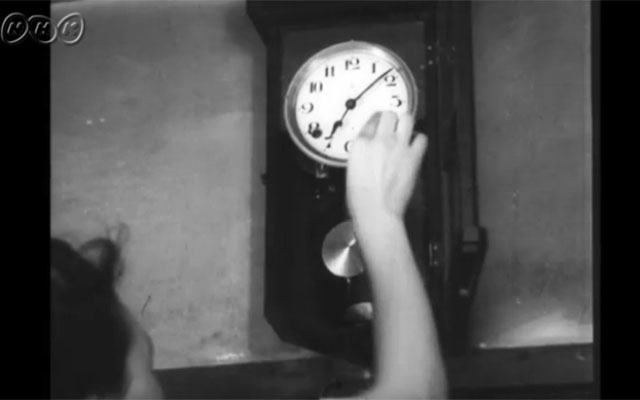Related Article
-

Japanese Train Conductor Apologizes To Passengers For “Having So Many Foreigners On Board”
-

Dessert Onigiri: Tokyo Store Now Sells Rice Ball Cakes
-

New Dollhouse Hedgehog Cafe Opens In Tokyo
-

Suntory Is Introducing Matcha Green Tea Kahlúa In Japan
-

Japanese designer and kiln team up for lovely sake carafes that sing like birds when you pour from them
-

Two Men Discover A Rotting Corpse Whilst Exploring An Abandoned Hotel



Japan is known to be a country that highly values punctuality, and even prides itself on having the most punctual public transportation systems in the world. But where did this culture of always being on time come from? Was it something that gradually evolved as Japanese society advanced and modernized, or was punctuality a trait that was somehow inherent in the cultural behaviors of the Japanese?
As it turns out, the Japanese were not always strict about time as they are now known to be. It wasn’t until June 10th of 1920 when, in memory of the day Emperor Tenji (626-672) first used a water clock to announce the time of day to the public, Time Day was instated as an annual day of commemoration. Also known as the Anniversary of Time, the day was created to urge people to be more punctual, as the Japanese were not so strict about it in the past.
One footage from June 10th, 1946 reveals the pressures placed on Japanese society as a whole to be more precise about time. Filmed during an era when people did not see time as such a big issue, it asked the question: "Are people working to be more punctual?"
Although the narration reveals that Japan's trains had already been long regarded as the most punctual in the world, much of the video shows that people weren't so enthusiastic about having to constantly worry about being tardy.
It starts with a female announcer calling out the time to the rest of the country, but revealing that a train arriving in Tokyo was 13 minutes late. Though that doesn’t sound like a huge deal, if that had happened today, train staff would repeatedly be apologizing to commuters and travelers for the delay!
The broadcast also shows a meeting of the prefectural governors of Japan, but revealing in jest that they have all “failed” for being late.
“We wonder which governor was the tardiest...”
As if refusing to put up with the new wave of pressure to actively be more on time, for some reason the lost and founds back then were also filled with mountains of watches. “Look at all this time that’s been forgotten,” jokingly mourns the narrator.
In a society where everything runs precisely to the minute, the stress of constantly having to check the clock can become heavy. Perhaps it would benefit everyone to know that at the very least, being late on occasion isn't the end of the world. But we can be sure that the narrator would be proud to see that Japan is now home to an entire population of very punctual people — to the point of being incredibly strict about time — for better or for worse.